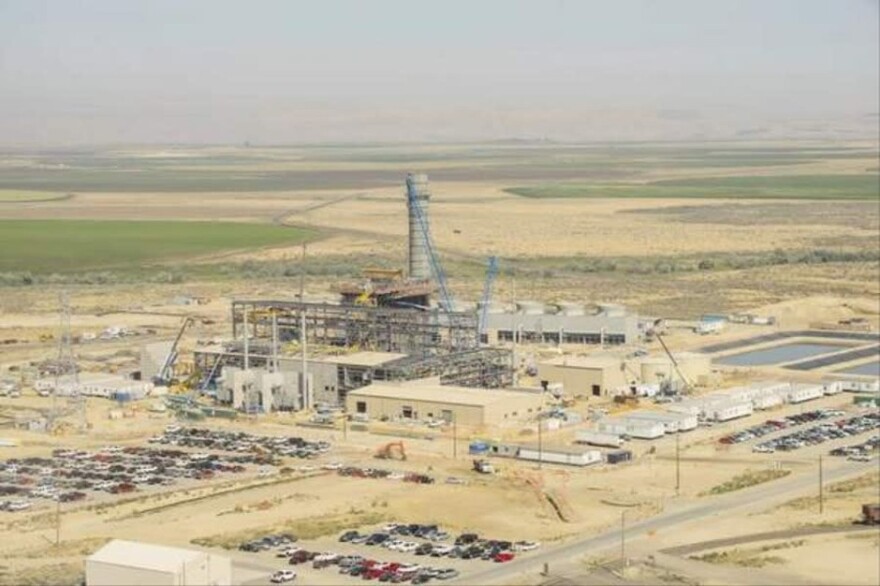Last year, the Oregon Department of Environmental Quality to create a program that would cap greenhouse gas emissions from major industries and reduce them over time.
The agency has been working to develop the program for nearly a year, and last month it convened to weigh in on the program’s rules for who will be regulated and how.
The rules are far from final, but environmental advocates say they’re already on the wrong track with too many exemptions that would allow industries to continue polluting and not enough commitment to the governor’s .
One of their biggest complaints is that DEQ staff has decided to exclude the entire electricity sector from the program, including eight natural gas power plants across the state.
Zach Baker with Oregon Climate Solutions, who sits on DEQ’s rulemaking advisory committee for the program, said state data shows greenhouse gas emissions from natural gas power plants have gone up by about 58% since 2012.
“These emissions have actually been growing,” Baker said. “And we have no plan. There’s no plan in our state to address these at this point.”
DEQ staff says they’re not planning to regulate natural gas power plants because that could push utilities to buy electricity from natural gas plants out of state, where DEQ doesn’t have authority to extend its program regulations.
DEQ Director Richard Whitman told committee members at a meeting Wednesday that his agency is “not clear” on the best way to get to 100% clean electricity without help from the Oregon Legislature, and he’s hoping to see lawmakers pass a bill this session that “would make our work here at DEQ much easier.”
would put new “clean energy” emission restrictions on 100% of the electricity sold in Oregon by 2035, effectively regulating greenhouse gas emissions from all natural gas power plants delivering electricity to the state.
“I completely agree that getting to 100% clean energy, clean electricity, is a critical part of getting control over our climate future,” Whitman said. “But to ask DEQ with its limited legislative authority to take on, in effect, 100% clean through the limited tools we have, we think there’s significant problems there.”
But the whole reason the governor issued an executive order on climate change was because , Baker said, so relying on the Legislature to regulate greenhouse gas emissions at this point is risky.
“We saw through the cap and invest conversations that we are not able to fully count on the Legislature to pass big ambitious climate legislation,” he said. “DEQ should be moving forward whether or not the Legislature is going to act.”
The Climate Protection Program isn’t scheduled to launch until next year after a vote by the Environmental Quality Commission. Right now,
Whitman also noted that the EQC will make the final call on many of the contentious issues critics are raising in the rulemaking process.
Copyright 2022 Oregon Public Broadcasting. To see more, visit .


